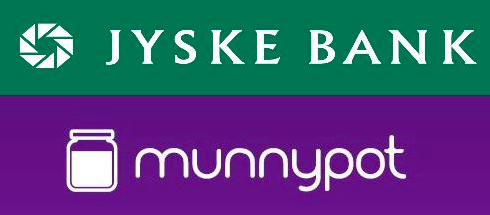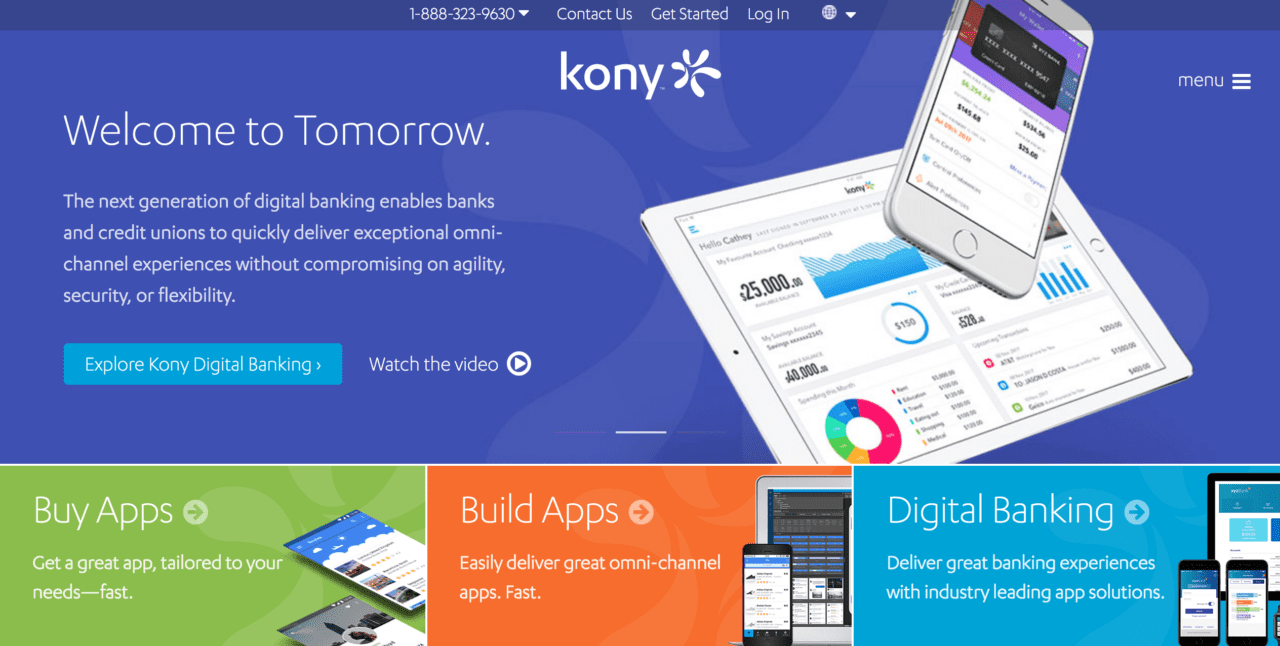
FinovateMiddle East is right around the corner. And in addition to our signature, 7-minute live demonstrations of the latest in fintech innovation, we will be hosting a wide variety of keynotes, addresses, panel discussions, and fireside chats, as well. Finovate now gives attendees more context and insight into the relationship between financial institutions, entrepreneurs, and investors that makes fintech innovation possible.
Here’s a quick introduction to the women and men who will be speaking on Day One of FinovateMiddle East. We’ll share our lineup of Day Two speakers in separate post. For more information about what’s happening on the first day of our conference, including our demos for the day, accelerator showcase, and lunchtime roundtables, check out our Day One agenda.
Keynotes & Addresses
Mirna Sleiman, Co-founder, Fintech Galaxy
Sleiman is a senior executive with 15+ years of experience in government relations, business strategy, digital communications and journalism, mostly within the MENA region. Sleiman will provide Chairperson’s remarks.
Jim Marous, Author and Publisher, The Financial Brand and the Digital Banking Report
Named as one of the most influential people in banking and a top 5 fintech influencer to follow, Marous is an internationally recognized financial industry strategist. Marous will speak on the topic “What can digital bankers learn from top innovators?”
Promoth Manghat, CEO, UAE Exchange
As CEO of UAE Exchange Group – a leading global provider of diversified financial services spanning money transfer, foreign exchange, and payment solutions – Manghat is responsible for strategy execution and management of operations across group entities. Manghat will discuss “Embracing fintech innovation – past, present, and future.”
Omeed Mehrinfar, Regional Director, EMEA Plug and Play
Head of Plug and Play’s fintech activities in Europe and general operations in the Middle East, Mehrinfar started his career being a founding member of one of Plug and Play’s largest divisions (fintech) in California. Mehrinfar’s address is titled “What do we mean by innovation?”
Sameer Singh Jaini, Fintech Asia top 100 influencer, CEO, Digital Fifth
Recognized as Fintech Asia Top 100, Jaini is a digital enthusiast with two decades of rich digital experience across Asia, Europe, and Americas. He has been part of core teams responsible for setting Kotak Mahindra Bank and Bharatiya Mahila Bank. His presentation will discuss the fintech strategies of Indian banks.
Raja Al Mazrouei, Executive Vice President, Fintech Hive, Dubai International Financial Centre (DIFC)
As Executive Vice President of Fintech Hive at DIFC, Ms. Al Mazrouei oversees the region’s first fintech accelerator, which brings together financial institutions, government entities, technology partners and entrepreneurs to develop technologies that benefit the financial industry. She will provide an introduction from the Fintech Hive at DIFC.
Discussions, Panels, and Roundtables
Ruth Wandhofer, Regulatory and Fintech expert, Citi
Wandhofer is one of the foremost authorities on banking regulatory matters. Her key responsibilities include driving regulatory and industry dialogue and developing product and market strategy in line with the evolving regulatory and innovation landscape.
Wandhofer will participate in Panel Discussion: Starter for one minute – What does a fintech want? What does a bank want? What does the investor think? and Chatham House Rule Panel Discussion on fintech regulation: What is happening? What needs to happen? Can we create best practices together?
Hans Christensen, Director, Dubai Silicon Oasis Authority
Christensen serves as the Director of DTEC which he was instrumental in building up from scratch to be the largest and most profitable tech co-working centre in MENA hosting 800+ start-ups from 70 nationalities and known for hosting Intelak (Emirates Airlines incubator), the Intel ignition lab and the Dubai Smart City Accelerator powered by Startupbootcamp.
Christensen will participate in Panel Discussion: Starter for one minute – What does a fintech want? What does a bank want? What does the investor think? and Panel Discussion: What’s happening now and what’s next for AI?
Mike Cunningham, CEO, Clearly
Cunningham is a thought leader and digital practitioner of innovation within financial services with an unmatched global network with the world’s leading fintechs, accelerators and the established corporates. Before joining CLEARLY, he was Executive Vice President at Abu Dhabi Commercial Bank where he led Group Strategy and Innovation.
Cunningham will participate in the Bank CEO Panel Discussion: Driving innovation forward and the fintech global vision.
Chris Taylor, CEO, Abu Dhabi Finance
Joining Abu Dhabi Finance in 2009 and responsible for overall strategy execution, leadership and management, Taylor Chris is an experienced Chartered Accountant with over two decades of local and international financial services experience. Chris was recognized as the ICAEW Middle East Chartered Accountant of the year in 2012 and under his leadership Abu Dhabi Finance has received multiple mortgages and finance company awards.
Taylor will participate in the Bank CEO Panel Discussion: Driving innovation forward and the fintech global vision.
Serdar Guner, Director, Supervision, DFSA
Guner joined the DFSA as senior manager in the supervision division in September 2010. He became a director in 2013 after serving as an associate director in 2012. Following responsibilities and directorship roles spanning prudential risk, market conduct and pooled supervision, he now leads a team responsible for the supervision of financial technology firms and cyber risk, with the overarching responsibility of governance and operational risk in the centre.
Guner will participate in the Chatham House rule panel discussion on fintech regulation: What is happening? What needs to happen? Can we create best practice together?
Wai-Lum Kwok, Executive Director, Capital Markets Financial Services Regulatory Authority, ADGM
Kwok joined the Financial Services Regulatory Authority (FSRA) of Abu Dhabi Global Market (ADGM) in June 2015. He heads up the Capital Markets division responsible for admission and supervision of financial market infrastructures and capital market intermediaries. The division also regulates the offering of securities, collective investments schemes.
Kwok will participate in the Chatham House rule panel discussion on fintech regulation: What is happening? What needs to happen? Can we create best practice together?
Pooja Singh, International Relations Specialist, Securities and Commodities Authority, UAE
Singh is a financial analysis and regulatory compliance professional with over 10 years of progressive experience. She currently works with Securities and Commodities Authority (SCA), UAE and is a member of their fintech team. She is working on various projects to implement international best practices in the UAE capital market and help shape SCA’s views on fintech.
Singh will participate in the Chatham House rule panel discussion on fintech regulation: What is happening? What needs to happen? Can we create best practice together?
Moussa Beidas, CEO & Co-founder, Bridg Payment Solutions
Beidas is a digital user experience designer and creative strategist who has built customer experiences for DeNA (Tokyo), Tata DOCOMO (India), Skype, Mathaf Museum of Modern Art (Qatar), Microsoft (USA), Hero MotoCorp, i2, ALDAR (UAE). He has designed customer experiences spanning the world’s largest markets including India and the Middle East impacting over 600 million end users.
Beidas will participate in Panel Discussion – How far can we go with big wallets? and the Day One Revisit: What did the bank gain? What did the fintech gain? What do investors think?
Narayanan Ganapathy, CEO, Angivest Ventures
CEO of an early stage investment firm based in Bahrain providing pre-seed and seed stage capital to technology startups globally, Ganapathy brings in a wealth of investment management experience, having worked both regionally and internationally in senior management positions with prominent institutions such as Deutsche Bank and GFH Financial Group.
Ganapathy will participate in Panel Discussion – How far can we go with big wallets?
Danny Abla, Director, Fintech, Arab Financial Services
A serial entrepreneur with 15 years in tech and 2 start-ups under his his belt, Abla founded PinPay in 2008 back when mobile payments was still in its infancy and sold it to a leading bank in 2013. He went on to found another start-up in New York, Shoop, which he sold in 2015. Since then, he got very involved in the MENA start-up ecosystem and has been helping start-ups design their products and grow their customer base.
Abla will participate in Panel Discussion – How far can we go with big wallets?
Vikas Bansal, Community Partner, FinTech Connector
Bansal has successfully managed multiple consulting/outsourcing relationships as a client partner for various banks and financial services institutions to deliver transformation projects and achieve key business objectives. As a strategic adviser to clients, he has been a keen observer and researcher of trends and opportunities that contextualize fintech and the various thematic areas of fintech innovation and disruptive technologies.
Bansal will participate in Panel Discussion – How far can we go with big wallets?
Gaurav Dhar, Second Generation Fintech Entrepreneur, Tech Investor, Advisor, Mentor
Dhar is the Manager at Payments Solution Provider Marshal Equipment. He has been working at Marshal for over 13 years now, handling the day-to-day business, delivering solutions, and building long-term partnerships and payment ecosystems.
Dhar will participate in our Panel Discussion – How far can we go with big wallets?
Suvo Sarkar, Sr. EVP & Group Head, Retail Banking and Wealth Management, Emirates NBD
General Manager for Retail Banking at Emirates NBD since June 2012, Sarkar has the mandate to oversee all aspects of Emirates NBD’s Retail Banking and Consumer Finance businesses, including branches, retail loans, mortgages, credit cards, wealth management, direct banking, SME, sales and marketing, as well as setting new standards in product innovation.
Sarkar will participate in the Big Bank fireside chat.
Zhi Ying Ng, Senior Analyst Forrester
Zhi Ying serves eBusiness and Channel Strategy Professionals within the Asia Pacific financial services and retail sectors. Her research focuses on how digital technologies are transforming the way financial institutions and retail enterprises interact and engage with empowered customers.
Zhi Ying will participate in the Big Bank fireside chat.
Rami El-Dokany, Founder, Inclusion
E-Dokany will participate in Panel Discussion: Starter for one minute – What does a fintech want? What does a bank want? What does the investor think?
A look at the companies demoing live at FinovateEurope on the 6 through 9 of March 2018 in London. Pick up your tickets today and save your spot.
 Presenters
Presenters Mark Hetenyi, Deputy CEO, Retail and Digital, MKB Bank
Mark Hetenyi, Deputy CEO, Retail and Digital, MKB Bank

 Presenters
Presenters Javier Puga, Product Marketing Manager
Javier Puga, Product Marketing Manager
 Presenter
Presenter








 Len Adriaenssens, Founder and Venture Partner
Len Adriaenssens, Founder and Venture Partner